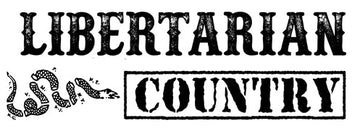However, It's not a joke and it's not designed to be inflammatory. There really should be no minimum wage.
With the first statutory minimum wage laws being introduced federally in 1938, most people living in the United States today were born after such laws were enacted.
Minimum wage was simply normalized. People have a tendency to not question things that are in existence; especially things that people generally accept.
How many people have actually questioned why we have a minimum wage at all? How many people have wondered if it was constitutional, ethical or even economically practical to have a minimum wage?
It's not likely something that the majority even thinks about.
Believe it or not, it has been a controversial subject in economics for quite some time. Many economists have flatly argued against minimum wage laws, and a 2015 EPI survey concluded that 72% of Labor Economists believed minimum wage increases would do more harm than good.
It's difficult for people who have little or no understanding of economics to comprehend the functions of the pricing system in a market economy in any true capacity.
This isn't an attempt to insult those people, but rather to sympathize with them on a human level. At a cursory glance, seeing a millionaire walking around with all kinds of money while he's paying his workers $7.25 an hour can be offensive to some.
With some understanding, however, it's not so offensive after all.
Labor, in a market economy, is purchased just like any other goods or services. The company owners purchase the labor at market value (usually a high-low range). They do not arbitrarily pay their employees.
The amount of money the company owners possess in their bank account is irrelevant to what they will pay for the labor.
Think of a rich person going into a CVS to buy a soda, a magazine and a pack of gum. She doesn't pay more for the products because she has more money than the guy in line behind her. They pay the same price for the same products.
The amount the company owners make or have in assets is not what determines the price of labor.
Explaining the economics can get a bit lengthy and I want to keep this article relatively short.
If you're interested in learning more about economic principles, I would highly recommend Thomas Sowell's book 'Basic Economics', which is a "plain English" guide to understanding the economy.
So why is minimum wage a bad thing?
Economists in favor of abolishing the minimum wage have argued that by creating artificial pricing through government mandating, price ceilings/floors etc. disrupts the function of the free market and has a tendency to create inflation and higher rates of unemployment.
While this may be true, the reason that minimum wage is a bad thing is much more simplistic.
The real reason that the minimum wage is wrong is because the government should possess no authority to interfere with the employer/employee wage agreement or contract.
At the risk of sounding inflammatory, I would say such an interference with private negotiation and contract teeters the line of fascism.
Exerting such an authoritarian interference, the government imposing minimum wage does 2 things:
- It strips the rights of the worker to negotiate on their own behalf
- It strips the rights of the employer to negotiate on their own behalf
Example: If Tony has aspirations to move up in a company and learn a trade from within that company, he understands that he must start at the bottom because he lacks any essential skill to perform the job that he one day hopes to achieve.
The company owner would hire Tony on at $4-$5 an hour, part time with some menial tasks and errands, just as a probationary pay until he can start learning the ins-and-outs of the job he is seeking.
Tony would happily accept the $4 an hour for what would be essentially a paid internship/apprenticeship; a chance to gradually acquire skill.
Unfortunately, the government has imposed a minimum wage way above $4/hr, and the company owner decides that hiring Tony simply wasn't in the budget. He doesn't take a chance with Tony because the financial risk outweighs the potential benefit of hiring him.
The minimum wage law has forced Tony out. It has excluded him from a chance to gain skills from within the company. Tony must now go to a trade school to learn the skill or look for another job/area of interest.
From a worker's rights perspective, the minimum wage law is not in the benefit of the unskilled worker, but rather just the opposite.
It's ironic, to me, that the 'Fight for $15' movement has audaciously brought in the slogan "Fight for $15 & fairness", which is a total contradiction.
I believe workers should be treated with respect, absolutely, and I believe they should be paid fair for the job they are doing. But there's nothing respectful or fair about the minimum wage law.
If you truly cared about those who are unskilled and unemployed, you would be fighting to abolish the minimum wage, not to increase the capacity of its tyranny.
Developed Countries Without Minimum Wage Laws
- Sweden
- Denmark
- Iceland
- Norway
- Switzerland



